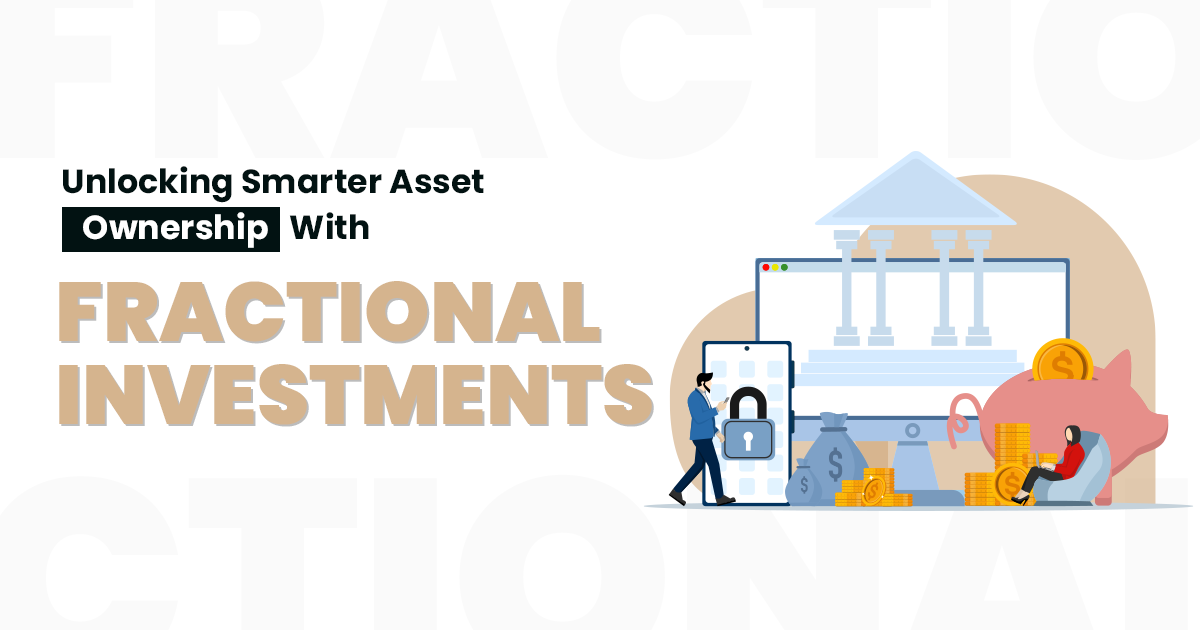Fractional ownership is the best kind of ownership if you want to invest in your future , family and financial purposes. Fractional ownership in Single Family Residences has the highest opportunity to appreciate in value. This is because in the future buyers may want to buy the home as a primary home. www.brikitt.com a subsidiary of Money Bricks a decade old Real Estate player in India is changing the trends in Luxury Residential Real Estate Market in India with their unique Brik Model which allows one to co-own Luxurious sky-bunglows, Pent Houses , Villas and Vacational Homes at a fraction of its cost and earn high rentals on their investment through there fully manage and operated property business model. A Brik is a 1/11 fraction of the property which allows you to use the property or earn rental income for 30days/year. Few key benefits of this unique Brik Model which makes Fractional Ownership more powerful then any other in the Market are:
- Power to Earn – By owning a Brik you can earn high rental yield for your 30 days via fully managing and operating services provided by BRIK ITT.
- Power to Gain- You can resell your Brik anytime after your locki-n period and earn high capital gains on your initial investments.
- Power to Use- Brik owner can use the property any time of the year for a month each year and book the same through fully loaded and user friendly owner app with numbers of features in it.
- Power to Exchange- Here comes the game changer , a Brik owner not only can use his property but all the property sold and manage by Brik ITT all over the world at a nominal exchange fee.
- Power to Upgrade- BRIK falls into 3 Categories Gold , Platinum and Titanium as per their property cost and it’s level of personalized services and standards. Every Brik will automatically gets upgraded to the next up category immediate after appreciating its cost to cross the benchmark price of the up category BRIKitt.
- Power of Professional Management- At Brikitt all the properties are professionally managed and operated by Highly skilled and Experienced team of a senior managerial level Hoteliers from various Top Class chain of 5Star Hotels and Resorts all around the world.
- Power to Liquidate- The Brik owner can any time liquidate his Brik after the lockin period of that particular Brik at an appreciated price and enjoy high returns. Fractional ownership is the wisest and smartest way of investing in real estate market in India. No investment scheme or asset class can stand out as risk free and rewarding as this.
Fractional ownership in real estate is gaining popularity as it provides a cost-effective way for individuals to own a share of high-value properties. This innovative approach allows multiple investors to purchase shares in a property, enabling them to enjoy the benefits of ownership without the full financial burden.
Understanding Fractional Ownership
Fractional ownership involves dividing the ownership of a property into shares, allowing multiple investors to co-own the property. Each investor holds a fraction of the title and is entitled to a proportional share of any income generated and a proportionate responsibility for expenses.
How Fractional Ownership Works
The property is divided into several fractions or shares in a fractional ownership arrangement. Each share represents a percentage of the ownership, and investors can purchase one or more shares. The property is managed by a management company or homeowners’ association, ensuring smooth operations and maintenance.
Pros and Cons of Fractional Ownership
Advantages of Fractional Ownership
- Cost-Effective: Investors can own a share of a high-value property at a fraction of the cost.
- Reduced Maintenance Hassles: The management company handles maintenance and management.
- Diversification: Investors can diversify their investment portfolio by owning shares in multiple properties.
- Access to Luxury Properties: Allows investors to own parts of luxury properties they otherwise couldn’t afford.
Disadvantages of Fractional Ownership
- Limited Control: Investors have limited control over the property.
- Resale Complexity: Selling fractional shares can be more complex than selling full ownership.
- Shared Costs: Expenses are shared, sometimes leading to disputes among co-owners.
Real Estate and Fractional Ownership
Real estate is an ideal asset for fractional ownership due to its high value and potential for appreciation. This approach is particularly popular in vacation properties, luxury homes, and commercial real estate.
Real Estate Fractional Ownership Structures
- Tenancy in Common (TIC): Each owner holds an undivided interest in the property.
- Limited Liability Company (LLC): The property is owned by an LLC, and investors hold membership interests.
- Cooperatives (Co-ops): Ownership is held by a cooperative corporation, and investors own shares in the corporation.
Tax Implications of Fractional Ownership
Fractional ownership can have various tax implications, including property taxes, income taxes on rental income, and capital gains taxes on the sale of shares. It’s essential to consult a tax professional to understand the specific tax obligations.
Fractional Ownership: Condos and Co-ops
Fractional ownership can be applied to condominiums and cooperatives, providing investors with access to high-value urban properties. In co-ops, investors own shares in a corporation that owns the property, while in condos, they own a fractional interest in the actual property.
Is Fractional Real Estate a Good Investment?
Fractional real estate can be a good investment for those looking to diversify their portfolio and gain access to high-value properties. However, it’s crucial to assess the property’s potential for appreciation, rental income, and the credibility of the management company.
Fractional Ownership through an Entity
In fractional ownership, investors often own the property through an entity like an LLC. This structure offers legal protection and streamlines management, reducing personal liability for investors.
Fractional Ownership vs. Timeshare
There are significant differences between fractional ownership and timeshare:
-
Ownership Type: Timeshare provides the right to use the property for a set time, while fractional ownership grants a share of the actual property.
-
Appreciation Potential: Fractional ownership benefits from property appreciation, whereas timeshares often have limited or no appreciation.
Often, fractional ownership is confused with timeshares, but they are fundamentally different. Understanding these distinctions is crucial:
|
Feature |
Fractional Ownership |
Timeshare |
|
Ownership Type |
Deeded, tangible ownership of a specific percentage of the asset. You own a piece of the property. |
Right-to-use contract or a very limited ownership interest. You own time, not the asset itself. |
|
Asset Type |
Applies to a wide range of high-value assets (real estate, jets, art, etc.). |
Primarily associated with vacation properties. |
|
Value & Appreciation |
Your share appreciates (or depreciates) with the value of the underlying asset. Potential for capital gains. |
Typically depreciates significantly over time. The resale market is often challenging. |
|
Resale Market |
Growing secondary markets, though liquidity can vary by asset and platform. |
Generally, very difficult to resell, often at a significant loss. |
|
Usage |
Flexible usage is often determined by co-owner agreement or a booking system. More usage periods. |
Fixed week(s) or a points-based system for specific time slots. Less flexible. |
|
Equity |
You build equity in a tangible asset. |
Little to no equity built. |
|
Legal Standing |
Stronger legal standing as a property owner. |
Contractual right to use, often with less robust legal protections. |
Fractional ownership offers a far more robust and investment-oriented approach compared to the transactional and often depreciating nature of timeshares. With fractional ownership, you’re investing in an asset; with a timeshare, you’re primarily buying a block of usage time.
Benefits of Fractional Ownership
-
Cost-Effectiveness: Access to high-value properties becomes more affordable.
-
Diversification: Investing in multiple properties reduces risk.
-
Professional Management: Management companies handle maintenance, offering convenience to investors.
Potential Rental Income
Fractional ownership can generate regular rental income for investors, providing steady returns on their invested amount.
Historical Development of Fractional Ownership
Fractional ownership emerged in the 1990s in the US and has since gained popularity in Europe and India. (Source)
How Does Fractional Real Estate Investment Work in India?
In India, fractional ownership platforms enable investors to invest in properties with a minimal amount. Platforms like BRIKitt offer opportunities in Holiday Homes and residential properties.
Types of Properties for Fractional Ownership
-
Commercial Properties: Offices, retail spaces
-
Residential Properties: Apartments, villas
-
Vacation Homes: Holiday homes, resorts
Fractional Ownership for Different Investor Profiles
-
New Investors: Ideal for starting with lower risk and investment.
-
Experienced Investors: Great for portfolio diversification.
Market Trends and Growth Potential
Fractional ownership is rapidly growing in India, especially in metropolitan cities and tourist destinations with high property prices. It provides a viable way for investors to own a share of premium properties.
Can Fractional Ownership Be Financed, or Does it Require a Cash Purchase?
Fractional ownership can sometimes be financed through specialized lenders, although it is more common for purchases to be made in cash. Financing options may vary based on the property type and location.
How Is the Resale of Fractional Ownership Handled?
The resale of fractional ownership shares can be complex, often requiring the approval of co-owners or the management company. It’s essential to understand the terms and conditions regarding resale before investing.
Why is Fractional Property Ownership a Growing Trend in India?
Fractional property ownership has emerged as a growing trend in India due to several compelling factors. This innovative ownership model is particularly attractive in a market where real estate prices are soaring, and access to premium properties remains a challenge for many. Here are some reasons why fractional property ownership is gaining popularity in India:
- High Real Estate Prices: In major Indian cities and popular tourist destinations, real estate prices are prohibitively high for many individual investors. Fractional ownership allows people to invest in premium properties by pooling resources, making it a more accessible and affordable option.
- Diversification of Investment Portfolio: Fractional ownership enables investors to diversify their portfolios by owning shares in multiple properties. This reduces risk and provides opportunities to invest in various types of real estate, such as residential, commercial, and vacation properties.
- Rise in Demand for Vacation Homes: With an increasing number of Indians seeking vacation homes, fractional ownership offers a viable solution. Investors can own a part of a luxury holiday home in desirable locations like Goa, Himachal Pradesh, or Kerala without bearing the full cost and maintenance responsibilities.
- Growing Affluence and Changing Lifestyles: As the middle and upper-middle-class segments in India grow, so does their disposable income and desire for luxury living. Fractional ownership caters to this demographic by offering a way to experience luxury properties and lifestyle amenities at a fraction of the cost.
- Professional Property Management: Fractional ownership often comes with professional property management services, ensuring that the property is well-maintained and generating rental income. This appeals to investors who prefer a hands-off approach and do not want to deal with the hassles of property management.
- Technological Advancements: Advancements in technology have made it easier for investors to access information, conduct transactions, and manage their investments remotely. Online platforms and apps facilitate the process of fractional ownership, making it more transparent and user-friendly.
- Attractive Returns on Investment: Fractional ownership can offer attractive returns on investment through rental income and property appreciation. This makes it a lucrative option for investors looking to capitalize on the booming real estate market in India.
- Regulatory Support: The Indian government has been taking steps to improve transparency and regulate the real estate sector more effectively. Initiatives like the Real Estate (Regulation and Development) Act (RERA) have boosted investor confidence, encouraging more people to explore fractional ownership.
- Increased Awareness and Acceptance: Awareness about fractional ownership is growing among Indian investors, driven by successful case studies and increased marketing efforts by companies offering these solutions. As more people understand the benefits, the acceptance of fractional ownership is on the rise.
- Flexibility and Reduced Financial Burden: Fractional ownership provides flexibility by allowing investors to own a part of a property without the full financial burden. This model is particularly appealing to those who want to invest in real estate but have limited capital.
BRIKitt: Your Gateway to Smarter Fractional Investments
At BRIKitt, we believe in empowering individuals to make intelligent investment choices. We carefully curate high-value assets, from luxurious homes in prime locations to promising commercial properties, and structure them for fractional ownership. Our platform handles all the complexities – from legal structuring and property management to ensuring transparent transactions, making it easy for you to diversify your portfolio and access assets previously reserved for the ultra-rich. Join the future of ownership with BRIKitt and unlock a world of possibilities.
Frequently Asked Questions (FAQs) about Fractional Ownership
Q. What exactly is fractional ownership in real estate?
Ans. Fractional ownership in real estate refers to owning a deeded percentage of a property, along with other co-owners. Each owner has legal rights to their share and usage of the property, proportionate to their ownership percentage. It’s about sharing the cost, responsibilities, and benefits of a high-value property.
Q. Is fractional home ownership the same as a timeshare?
Ans. No, they are distinctly different. Fractional home ownership involves direct, deeded ownership of a part of the property, meaning you own an asset that can appreciate. Timeshares typically offer a “right to use” for a specific period, without actual property ownership, and often depreciate significantly.
Q. What types of properties can be purchased through fractional property ownership?
Ans. While luxury vacation homes are popular, fractional property ownership extends to a wide range of real estate, including commercial properties (offices, retail, industrial), residential apartments, villas, and even land.
Q. What are the main benefits of fractional house ownership?
Ans. The key benefits include significantly lower upfront costs, shared maintenance and management expenses, access to luxury properties you might not afford outright, potential for asset appreciation, and diversification of your investment portfolio.
Q. How does fractional real estate differ from traditional real estate investment?
Ans. In traditional real estate, you buy 100% of a property. In fractional real estate, you buy a percentage, sharing the costs and benefits with others. This allows for lower entry barriers, diversification, and often professional management of the asset.
Q. Can I sell my fractional ownership share?
Ans. Yes, generally you can sell your fractional ownership share. The ease of sale can depend on the asset, the platform facilitating the ownership (like BRIKitt), and the market demand for that specific asset. Reputable platforms often assist with or facilitate secondary market sales.
Q. What are the typical costs associated with fractional ownership?
Ans. Costs typically include the purchase price of your fraction, closing costs, and ongoing management and maintenance fees. These ongoing fees cover property upkeep, utilities, insurance, and professional management services.
Q. Is fractional ownership a good investment for rental income?
Ans. Yes, especially with fractional ownership of residential & commercial properties or vacation rentals. If the asset is generating rental income, fractional owners typically receive a share of that income proportionate to their ownership percentage, offering a potential return on investment.
Q. What legal considerations should I be aware of with Brikitt’s fractional ownership?
Ans. With Brikitt, it’s crucial to understand the legal structure of the SPV, the terms of the operating agreement, usage rights for your fraction (one of 11), exit clauses, and the responsibilities of each co-owner. Brikitt ensures all legal documentation is thorough and transparent.
Q. How does Brikitt make fractional ownership accessible and secure?
Ans. Brikitt identifies, vets, and acquires high-value assets, structures them for fractional ownership by dividing them into 11 manageable fractions, and utilizes an SPV to hold the property. We handle all legal and administrative complexities and provide professional property management, ensuring a secure, transparent, and hassle-free investment experience for our clients.









